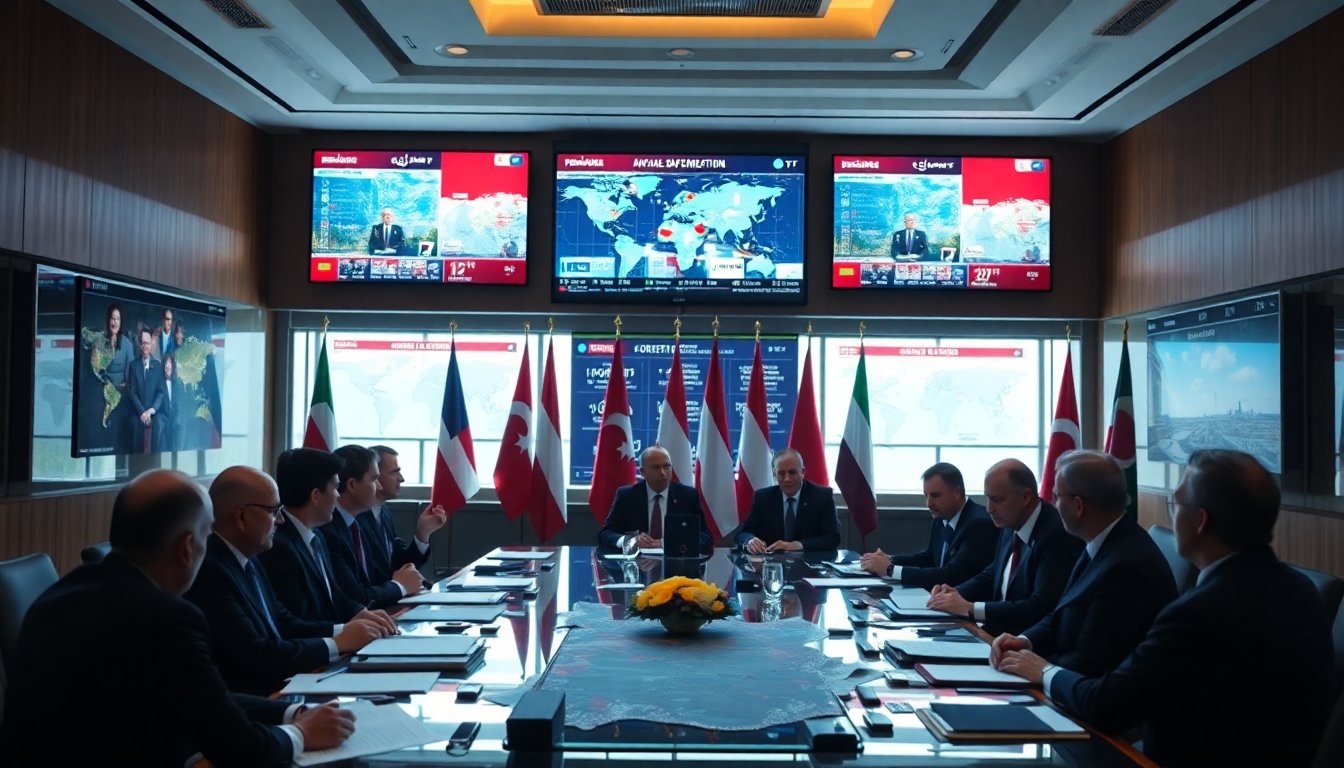Table of Contents
The recent military strike carried out by Israel in Qatar has drawn significant condemnation from global leaders. This operation, targeting Hamas political leaders amid ceasefire negotiations in Gaza, has raised concerns about the geopolitical landscape in the Middle East. Criticism has come not only from Israel’s longstanding allies but has also sparked broader discussions regarding international policy and diplomatic relations. Despite the outcry, analysts suggest that substantial shifts in policy from Israel’s allies are unlikely.
Global Reactions to the Israeli Strike
International leaders reacted swiftly to the attack, expressing their dissatisfaction. U.S. President Donald Trump, a strong supporter of Israel, stated he was “very unhappy about every aspect” of the operation. Germany, a consistent ally, condemned the attack as “unacceptable” and a violation of Qatar’s sovereignty. Likewise, India, which has historically backed Israel under Prime Minister Narendra Modi, raised concerns about potential escalation in the region.
Despite these condemnations, experts remain skeptical about the likelihood of significant policy changes. HA Hellyer, a senior fellow at the Royal United Services Institute, noted that Israel has routinely disregarded international law during its military actions in Gaza, leading to severe humanitarian consequences. With over 64,000 Palestinian casualties reported, this pattern of aggression towards neighboring countries continues, showing little regard for international criticism.
Implications for Qatar and the Gulf Region
The strike on Qatar is particularly significant given the nation’s growing diplomatic clout and its strong ties with the United States. Although the attack resulted in the deaths of several Hamas members, it did not achieve its primary objective of eliminating key leaders. Analysts warn that while Qatar’s relationship with the U.S. may enhance its standing in the region, it might not be enough to alter global policy towards Israel.
Karim Emile Bitar, a professor at Saint Joseph University, remarked on the noticeable shift in international public opinion, primarily driven by the humanitarian crisis in Gaza. The perception of genocide, even among prominent Israeli scholars, is fostering a harder stance against Israel within Gulf states. Following the attack, Gulf leaders are reportedly discussing a collective response, indicating a potential shift in regional dynamics.
Trends in European Policy and International Relations
European nations have begun to exhibit increased scrutiny towards Israel’s actions. The European Union has seen a rise in critical rhetoric, with some countries threatening sanctions. Spain has notably introduced an arms embargo against Israel, while discussions about suspending the EU-Israel free trade agreement are gaining traction. While these measures represent a significant development, they are minor compared to the isolation faced by Russia following its invasion of Ukraine.
Despite ongoing violence, including recent strikes in Yemen that resulted in significant casualties, Israel appears undeterred. Prime Minister Benjamin Netanyahu’s acknowledgment of responsibility for the Qatar strike reflects a broader trend of defiance against international norms, raising questions about effective deterrents. Rob Geist Pinfold, a lecturer at King’s College London, articulated the sentiment that European states lack sufficient leverage to compel Israel to alter its aggressive tactics.
Ultimately, the role of the United States remains a crucial factor in determining Israel’s international standing. While President Trump has fostered a pro-Israel environment through substantial military support, the potential for a ceasefire in Gaza remains uncertain. Should the U.S. exert pressure on Israel to reconsider its military actions, it could catalyze a significant shift in the diplomatic landscape.


